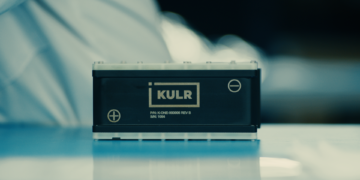Investor Interest and Merger Talks Bring Renewed Attention to Intel’s Struggles in the AI-Driven Market
Intel (INTC) saw its stock rise in early trading on Monday following reports that Apollo Global Management is considering a significant multibillion-dollar investment in the company. According to a Bloomberg report, the private equity firm could invest up to $5 billion in the chipmaker, news that has sparked market excitement. This comes at a time when Intel is already in the spotlight after recent speculation that it may be in talks for a friendly takeover by fellow semiconductor giant Qualcomm (QCOM).
The news of Apollo’s potential investment sent Intel’s shares up 2% on Monday, while the rumors of a Qualcomm acquisition had already pushed the stock higher by over 3% last Friday. Qualcomm, on the other hand, has seen a less positive reaction from its shareholders, with the company’s shares falling about 3% on Friday and remaining flat in Monday’s early trading.
Apollo’s Existing Relationship with Intel
Apollo Global Management and Intel have an existing financial relationship, which makes this potential investment even more significant. In June, Intel sold Apollo an $11 billion stake in its manufacturing facility in Ireland. A further investment of up to $5 billion would solidify Apollo’s stake in Intel’s future direction and business strategy.
This new influx of capital could help Intel navigate its current challenges as it struggles to compete with AI-focused rivals like Nvidia (NASDAQ: NVDA) and Advanced Micro Devices (NASDAQ: AMD). Both companies have rapidly gained ground with their advanced AI chips, which have been embraced by leading tech giants like Amazon (NASDAQ: AMZN), Google (NASDAQ: GOOGL), and Microsoft (NASDAQ: MSFT). In contrast, Intel’s Gaudi AI processor has not managed to capture the same level of interest from major players in the industry, largely due to its late entry into the market.
Qualcomm’s Takeover Bid: A Deal with Major Implications
The prospect of a Qualcomm acquisition of Intel has generated both intrigue and concern. Should the deal go through, it would represent the largest technology merger since Microsoft’s $69 billion acquisition of Activision Blizzard. However, the sheer scale of the merger would also invite scrutiny from federal antitrust regulators, who have become increasingly vigilant in recent years.
Stifel analysts highlighted this potential hurdle in a note to investors, drawing parallels to previous mega-mergers that failed to clear regulatory approval. Notable examples include Nvidia’s attempt to acquire ARM Holdings, Broadcom’s bid to take over Qualcomm, and Qualcomm’s own previous efforts to acquire NXP Semiconductor.
“Given the regulatory environment, it’s unlikely that a Qualcomm-Intel merger would get the green light,” Stifel analysts noted. They emphasized the increased oversight on tech industry consolidation, which has intensified amid growing concerns about monopolistic practices.
Analysts Question the Merger’s Value for Intel
Even if a Qualcomm takeover were to succeed, not all industry experts are convinced it would be beneficial for Intel or its shareholders. Several analysts argue that Intel should abandon its ambitions to remain a leading chip manufacturer and instead focus on more profitable areas of its business. Intel’s foundry division, which manufactures chips for other companies, has been particularly criticized.
“We continue to believe Intel should exit the foundry business in the best interest of shareholders,” Citi analysts wrote on Monday. “The company has a very small chance of becoming a profitable leading-edge foundry.”
Other analysts have echoed these sentiments. Bernstein senior analyst Stacy Rasgon expressed doubts about the viability of a Qualcomm-Intel deal, stating, “It would be hard to do a deal where I think the risk would justify the returns.”
Intel’s foundry business faces stiff competition from established players like Taiwan Semiconductor Manufacturing Company (TSMC) and Samsung. Given the capital-intensive nature of the foundry business and Intel’s recent struggles, many analysts believe that it would be more prudent for Intel to shift its focus away from chip manufacturing and towards other areas of growth.
Intel’s Efforts to Regain Momentum
Despite these challenges, Intel has been making moves to regain its footing in the competitive tech landscape. Last week, Intel CEO Pat Gelsinger announced a multibillion-dollar expansion of its partnership with Amazon Web Services (AWS) and secured $3 billion in funding from the CHIPS Act, aimed at boosting domestic semiconductor manufacturing in the United States.
“This news, combined with our AWS announcement, demonstrates the continued progress we are making to build a world-class foundry business,” Gelsinger stated.
Intel’s recent developments, coupled with the potential investments from Apollo and Qualcomm, have reignited interest in the company. However, with significant hurdles remaining—both in terms of competition and regulatory scrutiny—Intel’s future trajectory remains uncertain. Whether these moves will be enough to position Intel as a leader in the AI-driven market remains to be seen.
For now, investors are watching closely, as Intel’s stock responds to a swirl of speculation, strategic partnerships, and potential mergers that could define the company’s next chapter.
You might like this article:Taiwan Tech Supply Chain Sees Mixed Performance in August











